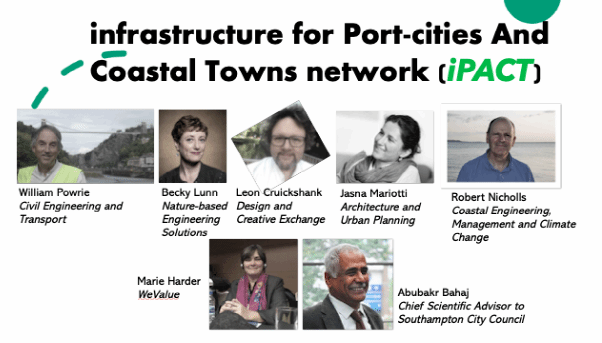

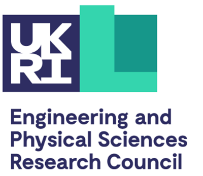
Keywords: shared values// community portraits // infrastructure needs// community engagement // community impact// transdisciplinary research// uk// coastal communities// governance infrastructure
Funded by: UKRI: EPSRC (Engineering & Physical Sciences Research Council)
Key Fudan team members: MKH; AJC; WWH; HYY;
Project period: 1/03/22 → 28/02/25
Key Contributions to WeValue Platform Knowledge:
This project demonstrated strongly, how the shared values of local peoples might not be focused on what national governments might imagine for them.
For the engineers who initiated this project, the underlying premise was that there was a need for engineering-based (grey) infrastructure investment in these three UK areas of national underinvestment. However, the local people in each area identified governance infrastructure as the highest priority for investment, and generally indicated their concerns for grey infrastructure only extended to the extent in which it might better support (or not detract from) community life.
The WeValue workstream’s agenda was to capture the in-situ shared values of some local groups, and only after that, to have focus group discussions on what the perceived infrastructure investment needs of the area were. In urban studies infrastructure is typically divided into types of grey, governance, socio-economic, and materials & resources infrastructure. All of these were mentioned as domains worthy of discussion in the focus groups, and the emerging themes were analysed.
Because of this project, we have documented demonstration that the WeValue approach can capture holistic shared values to provide useful portraits to inform policy, and secondly, that it can be used to identify grounded themes for comparison against externally generated themes, e.g. of infrastructure needs.
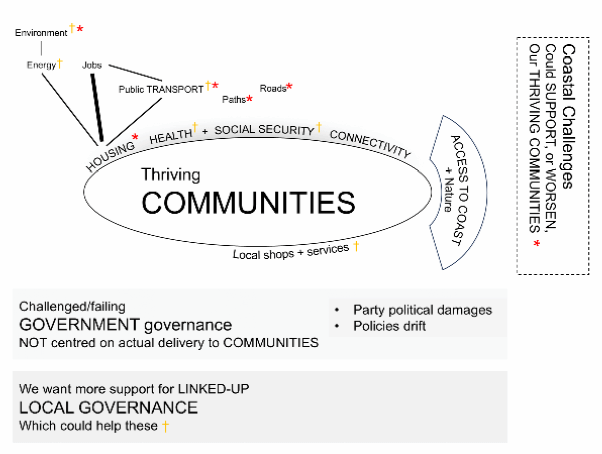
Figure 1. The grounded themes of concern for investment in local infrastructure from the North Norfolk area, obtained through WeValue InSitu workshops (limited to Cramer to Sheringham along the coast).
Relevant papers published: Report on findings about North Norfolk
Official websites IPACT – Infrastructure for Port Cities and Coastal Towns
iPACT Showcase in Westminster, London – IPACT
Official purpose:
Port and Coastal Cities and Towns Network was a UKRI project, led by the University of Southampton, to develop a network of researchers and practitioners in subjects relating to infrastructure needs in ports and coastal cities. Centred on Southampton, North Norfolk and Morecambe Bay. Research institutions were:
·University of Southampton School of Engineering
·University of East Anglia Tyndall Centre
·Queen's University of Belfast
·Lancaster University, Lancaster Inst for the Contemporary Arts
·University of Strathclyde
·University of Brighton, Values & Sustainable Research Group
The Towns network (iPACT) was established to identify people-focused, infrastructure-based solutions to the complex problem of improving social well-being and prosperity in coastal communities through resilient and sustainable regeneration; with a key emphasis on taking advantage of the coastal location.
Research questions have been based around themes of:
·Connectivity with the coast; Inclusive infrastructure
·Maintaining and enhancing resilience;
·Coastal region transport;
·Nature-inspired, human scale engineering
Project partners include Southampton City Council, Lancaster City Council, Eden North
and Coastal Partnership East (North Norfolk District Council, Great Yarmouth Borough
Council, Waveney District Council and Suffolk Coastal District Council). Case study areas of Southampton, North Norfolk and Morecambe encapsulate the issues faced by the spectrum of port cities and coastal towns, including juxtaposition with major international ports, seaside resorts declining in popularity and historic communities with an ageing population facing coastal erosion and sea level rise.
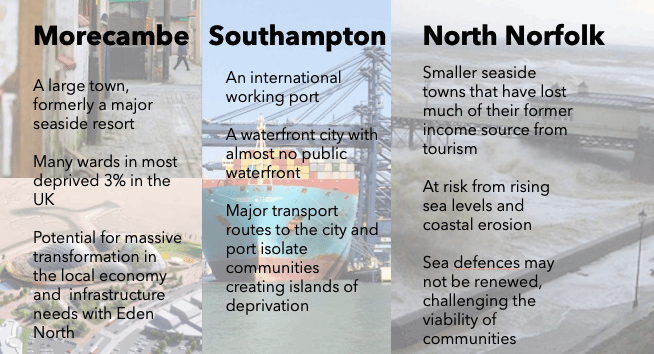
Project findings and impact
The findings and reports from a series of WeValue community-based consultations in each of the three locations informed ‘sandpit’ workshops with iPACT researchers and local stakeholders, one in each case study location, where there was brainstorming on inter/transdisciplinary pilot projects that could be taken forward in a short time. The WeValue information was about the local shared values of residents, and other stakeholders brought expert information about local governance, environmental concerns, and disciplinary research expertise. From these sandpits, the iPACT project developed six “Pilot Projects”, to assess the feasibility of potential solutions. The outcomes of those projects are summarised in the final brochure publication. [iPACT brochure available to download – IPACT]
Although the Pilot Projects and the initial grant funding are now at an end, the iPACT network continues as a collaborative research and user community to develop and help implement sustainable infrastructure solutions that improve the wellbeing, resilience and sustainability of the UK’s coastal settlements for decades to come.
Formal documents and publications
iPACT brochure available to download – IPACT [https://ipact.org.uk/2025/01/28/ipact-brochure-available-now/ ]
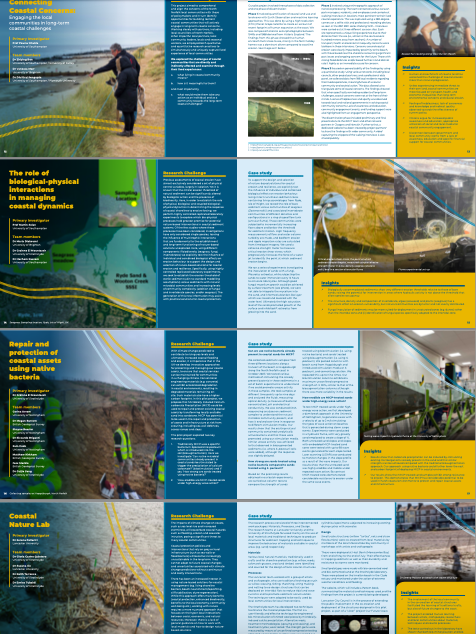
Partners
Principal Investigator:
Professor William Powrie, University of Southampton Sch of Engineering
Academic Co-Investigators:
Professor Robert Nicholls
University of East Anglia Tyndall Centre 3.75
Dr Jasna Mariotti, Queen's University of Belfast
Professor Leon Cruickshank, Lancaster University
Professor Rebecca Lunn, University of Strathclyde, Civil and Environmental Engineering
Professor Marie Harder, Values & Sustainability Research Group, University of Brighton
Project Partners:
Southampton City Council,
Lancaster City Council,
Eden North
Coastal Partnership East (North Norfolk District Council, Great Yarmouth Borough
Council, Waveney District Council and Suffolk Coastal District Council).
